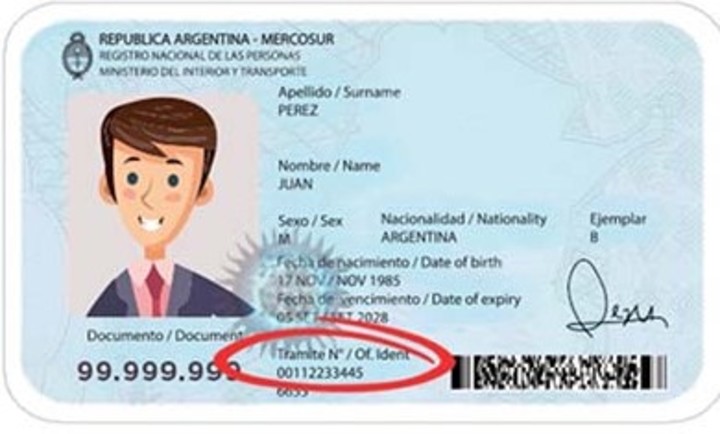Learn the ITIN Renewal Process easily! Get tips, necessary documents, and avoid common challenges to ensure smooth tax compliance today.
What is an ITIN?
An ITIN, or Individual Taxpayer Identification Number, is a tax processing number issued by the IRS to those who need to comply with U.S. tax laws but are not eligible for a Social Security number. This includes foreign nationals, dependents, or even some residents. The ITIN is used primarily for tax purposes, allowing individuals to file tax returns and pay taxes on any income earned in the U.S. I remember when I first learned about ITINs because a close friend of mine needed one to file their taxes. It can be quite overwhelming to navigate the application process if you’re unfamiliar with it, but I can assure you it’s not as scary as it seems!
The IRS assigns ITINs in the format 9XX-7X-XXXX or 9XX-8X-XXXX, where the first digit always starts with a 9. It’s important to note that ITINs do not grant the holder the right to work in the United States or provide any form of immigration status. So, whether you’re filing taxes on rental income or freelance work, having an ITIN is essential for compliance and ensuring you don’t face any penalties later on.
Necessary Documents for Renewal
When it comes to renewing your ITIN, having the right documents is just as important as properly completing your application. The IRS requires specific identification and proof of foreign status, which I learned firsthand during my own renewal experience. Common documents include a valid passport, a U.S. driver’s license, or even a birth certificate. You’ll need to provide original documents or certified copies, as photocopies won’t be accepted, and trust me, I made that mistake once! Don’t overlook the importance of ensuring that your documents are current and not expired, otherwise it could be a waste of time and effort.
The IRS also provides a list of acceptable documents, so it’s beneficial to review this before you send in your application. I often find that checking things off a list helps ease my anxiety around tax season, especially for something as critical as an ITIN renewal. Plus, having everything ready and organized increases your chances of a smooth process. So, gather those documents early and get them ready for your application!
How ITINs Expire
Like everything else in life, ITINs have an expiration date, which I found out the hard way! That’s right—any ITIN that hasn’t been used on a federal tax return for three consecutive years will expire. For instance, if you’ve got an ITIN but haven’t submitted a tax return for a while, it’s quite likely that it has automatically expired without you even knowing. Imagine being ready to file your taxes, only to discover that you can’t because your number is invalid. It’s crucial to stay ahead of this and keep track of your filing status, especially if your ITIN is close to expiration.
Another thing to keep in mind is that starting from 2021, ITINs issued before 2013 have been valid for only five years, meaning they will also need to be renewed if you haven’t used them to file taxes. So, always keep an eye on your ITIN status so you can manage your finances better and avoid any last-minute surprises in tax season.

Common ITIN Renewal Challenges
Renewing your ITIN might sound simple, but it comes with its fair share of challenges. For example, many people forget to update their personal information, which can cause unnecessary delays. I once had a friend who barely made a mistake when entering a date of birth and ended up with a rejected application! It’s essential to double-check the information on your form to avoid such complications. Additionally, as I mentioned earlier, if you’re applying for a renewal due to the expiration, timing can be an issue. There’s a chance that your renewal might not arrive before the tax filing deadline, which further complicates matters.
I’ve heard stories from others who had to file extensions because of this. Then there’s the dreaded paperwork—navigating IRS forms and ensuring you’ve got everything in order can leave you feeling overwhelmed. But remember, taking a step back and organizing everything can help alleviate that stress, and reaching out for assistance can always be an option!
Tips for a Smooth Renewal Process
To ensure a smooth renewal process for your ITIN, there are several tips I’d recommend based on my own experiences. First and foremost, start early. I can’t stress this enough! The earlier you begin, the less stressful it becomes. Personally, I like to keep a reminder set for about three months before tax season starts, so there’s ample time. Also, consider using a checklist for required documents to prevent omissions.
As I hinted before, keeping all your documents updated and accurate is key. Don’t feel shy to seek help if you’re confused about any part of the renewal—there are resources available, such as tax professionals who know their stuff. Another tip is to track your application after submission. After sending in your Form W-7, keeping a close eye on your status can prepare you mentally for any delays. Lastly, stay positive! Sometimes things don’t go as planned, but as I’ve learned, finding solutions becomes easier when you approach challenges cheerfully and with an open mind.
Renewing Your ITIN
Renewing your ITIN is a process that may seem daunting, but honestly, it’s quite manageable once you break it down. You’ll need to fill out Form W-7, which is the application for an ITIN. I still remember the first time I did this for my own ITIN; I consulted many guides and watched a few videos, and it helped me so much! Make sure to attach the required documentation that proves both your identity and foreign status.
This could be a passport, birth certificate, or any other accepted documents set forth by the IRS. Timing is everything, though! If you’re planning to file a tax return, make sure you send your application in well before the filing deadline to avoid any complications. Once you’ve submitted everything, it could take anywhere from six to eight weeks to get your new number, so patience is key. If, for some reason, your renewal is denied, the IRS typically provides guidance on what to do next, so don’t lose hope and keep your spirits up!


